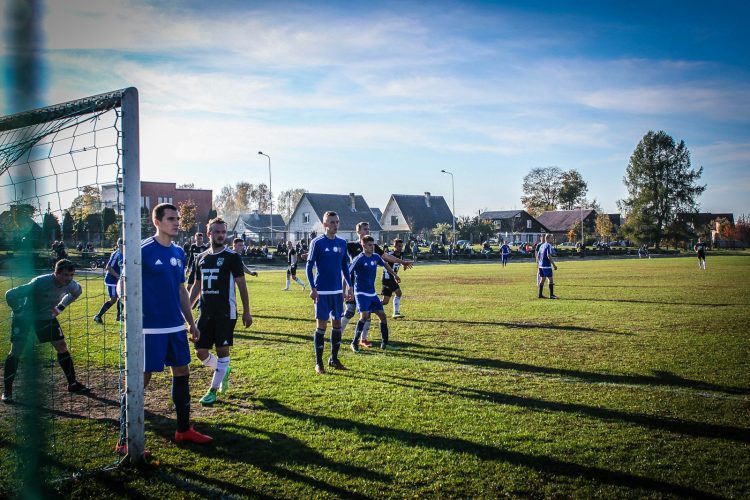Whether you’re a seasoned athlete, an enthusiastic fan, or someone stepping into the thrilling world of competitive sports for the first time, one thing remains universally true—major sports events don’t just happen. They’re not spontaneous eruptions of athleticism and spectacle. Behind the roar of the crowd and the flash of the scoreboard is a mountain of planning, preparation, and intention.
Preparation is the secret sauce that transforms talent into performance, nerves into focus, and chaos into coordination. It’s what turns an athlete’s years of training into a winning moment, and what helps fans make the most of their experience. But it’s not just about what happens on the field or court—it’s also about mindset, logistics, strategy, and sometimes even rest.
This essay will unpack the many layers of preparing for a major sports event, not just from an athlete’s perspective, but also through the lens of coaches, support staff, and yes, even the audience. Because when the stakes are high, preparation isn’t optional—it’s everything.
Mental Preparation: The Invisible Edge
Ask any elite athlete and they’ll tell you—success isn’t only about physical ability. When the margin between first and second place is razor-thin, mental strength often makes the difference.
Preparing for a big event starts weeks or even months in advance in the mind. Visualization techniques are commonly used by top performers to mentally “rehearse” every aspect of competition. They imagine the field, the crowd, the pressure, and themselves executing their best moves flawlessly. This practice reduces anxiety and builds confidence by making the extraordinary feel familiar.
Mindfulness, meditation, and breathing techniques are also part of the modern athlete’s toolkit. These help control stress, stay grounded, and maintain focus when the adrenaline spikes. Some even work with sports psychologists to develop routines that boost resilience and keep negative self-talk at bay.
It’s also worth noting that mental preparation isn’t exclusive to athletes. Coaches need to mentally simulate various game-day scenarios, fans often plan for the sensory overload of big venues, and event staff must be sharp and ready for the unexpected.
Physical Conditioning: Training with Purpose
Physical training is the most visible part of preparing for a major sports event, but what people often miss is how specific and intentional that training becomes as the event approaches.
Athletes shift from general fitness to event-specific preparation. Runners, for example, might taper their training as race day nears, allowing muscles to recover while still maintaining peak readiness. Team sports may focus on game-simulation drills, strategic walk-throughs, or endurance training depending on the needs of the players and opponents.
Strength training, conditioning, agility work, and rest are carefully balanced. Nutrition plans are dialed in. Hydration becomes a discipline. Even sleep schedules are optimized. These aren’t just habits—they’re strategies, each with a purpose aligned to performance.
Importantly, injury prevention becomes a top priority. Physical therapists and trainers are often on hand to ensure flexibility, address any pain points, and reinforce proper movement patterns.
Strategy and Scouting: Knowing the Battlefield
You wouldn’t go into battle without a map, and no athlete or coach goes into a major sports event without a strategy.
For individual sports, this might mean analyzing personal performance data, setting tactical goals, and reviewing footage from past competitions. For team sports, it goes much deeper. Coaches pour over opponent footage, identifying strengths, weaknesses, habits, and patterns. They’ll tailor plays, formations, and rotations around this intel. The goal is to anticipate what’s coming and prepare counters before the whistle even blows.
Pre-game strategy sessions become a space where teams refine communication, sharpen roles, and mentally commit to a shared vision. It’s less about rigid plans and more about clarity—so that when the unpredictable happens, everyone knows how to adapt.
Even spectators, especially die-hard fans, get in on this. They follow stats, read predictions, and develop expectations for what might unfold. It adds to the richness of the experience and deepens their connection to the event.
Logistics and Gear: No Detail Too Small
Ever hear the saying, “Failing to prepare is preparing to fail”? Nowhere is that truer than in the small, logistical details that can make or break game day.
Athletes ensure their gear is in top shape—uniforms, shoes, equipment—all prepped and double-checked. Spare parts, tape, backups, and emergency fixes are packed and ready. Travel arrangements, arrival times, warm-up schedules, and pre-event meals are all timed to precision.
If you’re a part of a larger organization or event crew, the logistics multiply. Venue setup, ticketing, media coordination, safety protocols, and timing all come into play. The margin for error is slim, and missteps can cascade into costly delays or chaos.
Fans, too, prepare. From booking hotels and transport to coordinating tailgates and securing good seats, attending a major sports event is an operation in itself. Smart fans bring weather-appropriate clothing, snacks, phone chargers, and backup plans for traffic or entry lines. Comfort and convenience don’t happen by accident—they’re the result of planning.
Nutrition and Fuel: Feeding Performance
Food is fuel, especially when peak performance is on the line. In the lead-up to a major event, athletes become extra disciplined with their diet. Carbohydrates might be loaded before endurance events; hydration protocols are strictly followed; supplements are taken with intention.
Coaches and trainers might work with nutritionists to develop meal plans tailored to each athlete’s needs, avoiding foods that could cause bloating or fatigue. Timing of meals becomes just as important as content—eating too late or too early can throw off energy levels or digestion.
For fans attending the event, thinking ahead about meals can improve the day’s experience too. Avoiding long concession lines, staying hydrated, and bringing easy-to-carry snacks can keep energy up and distractions down—especially for families or those navigating large venues.
Emotional Management: Staying Grounded
Big events carry big emotions. For athletes, the pressure to perform can be overwhelming. That’s why part of preparation involves learning to manage expectations—not just from the public, but from within.
Routines help here. Whether it’s listening to a specific playlist, doing a pre-game ritual, or simply wearing lucky socks, these habits create stability and signal readiness. Emotional support from teammates, family, and coaches can also keep nerves in check.
Fans often overlook how emotional preparation affects them, too. High-stakes games bring intense highs and lows. Being ready for the rollercoaster—whether it’s your team’s triumph or heartbreak—can mean the difference between enjoying the experience or being crushed by it.
Recovery Planning: The Aftermath Matters Too
Finally, preparing for a major sports event doesn’t stop at the final whistle. In fact, how you recover is just as important as how you perform.
Athletes schedule recovery meals, massages, ice baths, and sleep to help their bodies heal quickly. Mentally, they begin processing the outcome—win or lose—and shift focus to the next goal.
Event organizers start breakdowns and feedback sessions. Fans share stories, relive moments, and already start planning for the next big game.
Recovery, in all its forms, is a chance to learn, reflect, and reset. It’s the unsung part of preparation—but one that keeps you coming back stronger.





